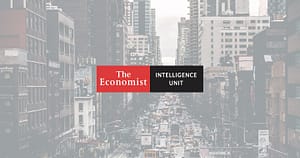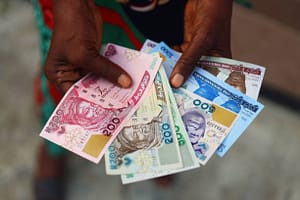

The Economist Intelligence Unit (EIU), a global research firm, has indicated that the Central Bank of Nigeria (CBN) currently lacks the financial capability to bolster the naira. This assessment was provided in their most recent “Country Report on Nigeria,” published last Friday.
Following the CBN’s unification of several segments of the country’s foreign exchange market on June 14, 2023, there was a notable decline in the naira’s value. The currency depreciated by 36.56%, dropping to 632.77/$ from an earlier rate of 463.38/$ in the official market. This trend of depreciation continued, particularly after a second devaluation in February, which saw the naira weaken by approximately 45% in efforts to align more closely with the parallel market rate. This positioned the naira as “the second-worst-performing currency in the world, after the Lebanese pound.”
The EIU suggested that foreign borrowing might be necessary for the CBN to support the naira and meet its foreign exchange obligations. The report stated, “Our view is that it will take foreign borrowing to rebuild the CBN’s buffers, fully clear a backlog of unmet foreign exchange orders and restore confidence.” Notably, Nigeria had already secured a $3.3 billion loan from the African Export-Import Bank and a $1 billion loan from the African Development Bank by the end of 2024, with another $1.5 billion sought from the World Bank.
The report forecasts considerable volatility for the naira throughout the year, potentially leading to “regulatory erraticism that can affect businesses, especially those holding foreign currency.” It highlighted the CBN’s liquidity challenges, noting that “out of $33bn in foreign reserves, a large share (estimated at nearly $20bn), is committed to various derivative deals.”
Additionally, the report addressed the Federal Government’s heightened incentive to borrow from the CBN following the reinstatement of fuel subsidies. In December 2023, the National Assembly approved the securitization of a “N7.3tn of the ways and means advance in the consolidated revenue fund of the Federal Government.” This facility allows the CBN to finance the Federal Government’s budget shortfalls.
Addressing President Bola Tinubu’s market reforms, the EIU described them as aimed at attracting investment but lacking a “coherent plan.” The reforms, particularly the elimination of petrol subsidies and the liberalization of the exchange rate, were criticized for their rapid implementation, which has led to “inflation rising to decades-long highs.” The report warns of the potential for “mass protests and strikes” if reforms continue to be rapidly pursued.
Looking ahead, the EIU revised its economic growth forecast for Nigeria in 2024 from 2.2% to 2.5%, citing expected increases in crude output and early production from the Dangote refinery. However, it cautioned that “Nigeria will continue to depend on fuel imports for most of the year as the refinery ramps up output.”
In conclusion, the EIU’s report paints a picture of a challenging economic landscape for Nigeria, emphasizing the need for careful management of monetary policies and market reforms to avoid exacerbating the country’s financial instability.

[…] Read Also: EIU – Foreign Borrowing Can Stabilize The Naira And settle The Debts Owed by CBN […]